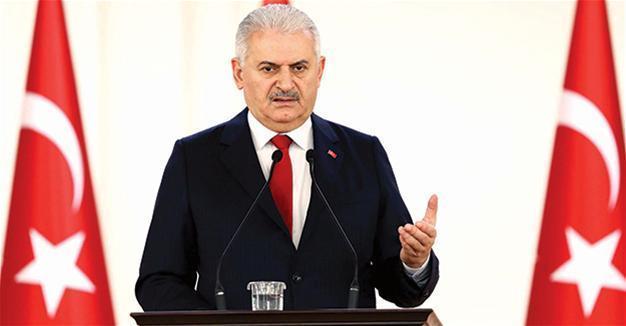Turkish PM blames ‘manipulators’ for depreciation of lira
Hande Fırat - ANKARA

AA photo
Prime Minister Binali Yıldırım has blamed “manipulators” for the Turkish Lira’s dramatic losses, claiming that recent fluctuations “do not reflect the economic realities” of the country.“The recent situation in our economy is temporary. It is not based on economic realities. There are some circles that are acting manipulatively. They want to push Turkey somewhere politically. That is my opinion and it is what the data shows,” Yıldırım told journalists in the capital Ankara on Jan. 13.
He noted that Turkish banks’ capital adequacy rates, budget deficit and its public debts are all at manageable levels.
“But for some circles these things are not enough. They have turned several threats and risks faced by Turkey into certain conclusions. There are some people who are raising risk perceptions about Turkey in a bid to squeeze it in economic terms. We have strengths and weaknesses and they know this. But we will overcome all these problems,” Yıldırım said.
The lira has rebounded slightly in the last two trading days of the week, as dollar weakness helped it move off record lows and the Central Bank canceled its weekly repo sales, after seeing its biggest plunge since the aftermath of a failed coup attempt last July.
The recent rises in foreign exchange rates have also been a direct result of massive forex buying of businesses to pay their forex debts, according to Yıldırım, who added that the government would lower loan costs in order to ease the pressure on such companies.
“The forex rises might worry our citizens, but they should know that this situation is temporary and will be overcome. We have worked on it and taken several measures. Our Central Bank has been competent regarding with its agenda. It takes the required measures,” he added.
The prime minister also repeated the government’s line that the Central Bank should not raise interest rates “unless deemed necessary.”
“Other measures should be considered first of all. Raising rates will push up the borrowing costs. There may be a positive correlation between interest rates and the inflation rate, but the difference should not be big,” Yıldırım said.
He also stated that lenders must create a room for debtors to rebound their businesses, to create new jobs, to accelerate their activities and thus to repay their debts, rather than “kicking them when they are down.”
















